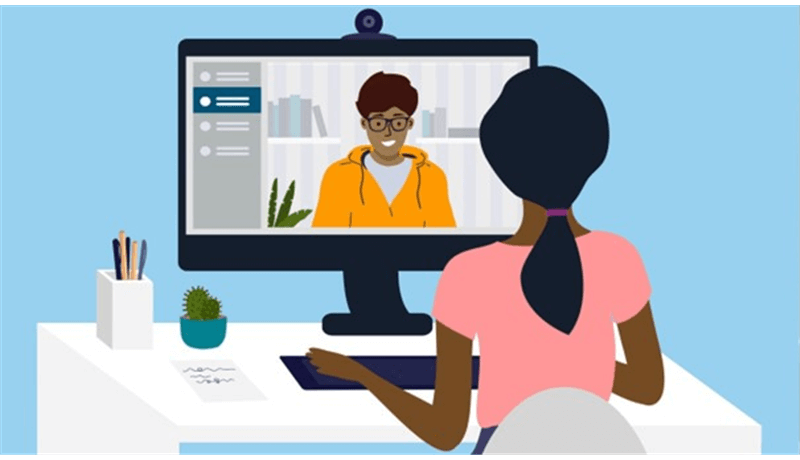
Easing Yourself Into The Interview Process
27 Mar, 20235 minutesStanding out in a job interview can be a challenging task, especially in a competitive job m...

Standing out in a job interview can be a challenging task, especially in a competitive job market.
However, with proper preparation and a strong understanding of what the employers are looking for, you can increase your chances of impressing the interviewer and landing the job.
What does it mean to “stand out”?
"Standing out during an interview" means you're leaving an unforgettable impression that can lead to your hiring. The company may take an interest in how much you know about the organization and your inspiration for applying to this role.
Changing positions is accompanied by getting married and moving as the top three most stressful things you can do. And it makes sense! These are huge life decisions that affect each other. Changing careers can affect the trajectory your career will take, earning potential, self-fulfillment, and of course, there is always a veil of uncertainty. But some things are simply worth the risk, and if you find yourself in this situation my advice is always, always take the interview.
Here are a few ways to mitigate your risks during the interview process and make the best impression possible:
Research the company before the interview
Before the interview, take the time to research the company itself. Understand the organization’s mission, values, and services. Furthermore, research the specific role you are interviewing for, including the responsibilities and qualifications required. This knowledge will help you tailor your responses to the interviewer's questions and demonstrate your interest in the company and position.
To your benefit it gives you insight into what the company stands for as well as any impact they may be making. If there are certain values or beliefs that you hold steadfastly a little research can shed some light on this area for you. It also simply adds an additional element of feeling prepared.
Prepare answers to common interview questions
This may seem obvious, but a question you can bank on an interviewer asking is “Why our company” or “What do you like about this role” or a question adjacent to that. It’s a generic question, however, it warrants an authentic answer because it should feel a little more personal. The question between the lines of this is “What are you looking for in a new environment and why is that important to you”. Understanding this and having a little insight into your potential employer are huge green flags to the interviewer as it demonstrates a level of attention and care that could have easily been overlooked.
It's important to have well-prepared answers to these questions that demonstrate your qualifications and enthusiasm for the position. Questions like this are bound to come up in interviews and how you answer it could determine the outcome of the interview so make sure to be prepared and have a structure on how to answer.
Know your resume and have examples
The number one piece of advice I give to all my candidates is to know your resume inside and out because anything and everything will be fair game. Your resume is the only information the hiring manager has on you up until they meet you during the actual interview. This is where they will draw first conclusions on your skill level and where they will draw their questions from
Anything on your resume is theoretical until you’re able to bring it to life during your conversation and having examples of your experiences or your projects is a tangible way you can demonstrate your skills in practice. It also provides a safe space for you to demonstrate communication skills in an area that you have operated. Having an example pulled from experience on your resume tells the interviewer a lot, primarily that you’ve done what you say you have and that you can relay that information effectively and therefore replicate that skill or that process.
Remember to show your value
What the hiring manager really wants to know is how you can add value to the company and if you’ll be a good fit for the team. During the interview, make sure to highlight how your skills and experiences can benefit the company. Use specific examples from your past experiences to demonstrate how you have added value to previous employers. Showcase your skills and talents as well as your personality, as both of those things are important and can be deciding factors in being called back for another interview.
For instance, if the job requires experience in Linux administration, refer to specific times in your past when you have been involved with that. Delineate the results you've produced for the companies you've worked for. Discuss how your strengths lead to your previous accomplishments. Emphasize the approach you'll take to replicate your accomplishments and what you can do to produce better results for the company.
Be punctual
Keep in mind that beyond your resume and possibly your LinkedIn profile the interviewer, regardless of who they are within the company, doesn’t have any additional information or insight into who you are, and first impressions matter. Think of this as setting the foundation or the tone for the rest of the interview but possibly even beyond that, setting the tone for the onset of your working relationship especially if it’s with a hiring manager.
As cliché as it might sound you have to put yourself in the interviewer’s shoes, how would you feel or what would you think if they were late in speaking to you? When it comes to interviews it is better for you to be 5 to 10 minutes early regardless of whether it is in person, virtual, or even a phone call. Have yourself in a quiet and calming area if it is virtual and if it is just a phone call still be in a quiet space where you feel prepared and at ease.
Ask relevant questions
Show your interest in the company and the position by inquiring about the company's history, culture, and values. By asking questions that will provide insight into what it’s like to work for the company, you’re showing the hiring manager that you’re truly interested in the job, plus it gives you a chance to learn more about your potential future workplace. All interviews are two-way streets so it’s important to walk out of any interview with a firmer understanding of not just the position but also of the culture you would be walking into. If it’s important to you, you should ask about it.
Companies like answering questions because asking them shows your inclination to understand key details about the position. Stick to asking questions associated with job responsibilities and qualifications. Ask them what tech stack they use, and what tools you will get the opportunity to be hands-on with. This will demonstrate your research and preparation, as well as your desire to learn more about the company and the role.
However, that being said it is also to keep questions relevant to who you’re speaking to and respective to the stage of the interview. Therefore if you’re in a first stage interview out of three with HR it may not be the time or place to ask about technical projects. Conversely, if you’re in a technical final it may not be appropriate to ask around holiday days or PTO. Of course, these questions are important but they should be addressed to the right people at the right time. This is where working with a recruiter is helpful because a lot of those baseline questions around time off or benefits can be investigated on your behalf as they tend to have a direct line to HR without you looking like maybe you’re just in it for the vacation time.
Be genuine and authentic during the interview
Hiring managers can tell when you’re rattling off over-rehearsed answers or just saying what you think they want to hear. Both of these types of answers can make you come across as not genuine or insincere, and neither will help you move forward in the interview process. What will help you stand out is speaking authentically. After all, it’s not just skills and experience that will land you a job, it’s how you present yourself and the impression you make in the interview.
Find the balance between professionalism and personability
While you should always present yourself as a professional, it’s your personality that’s going to get you remembered and land you that job offer. They already know that you have the skills needed for the job, so now’s your chance to show them the person behind the resume. Despite it being crucial to get on with your interviewer, don't forget that you are applying for a job, and with that comes an expectation of professionality. Speak with the interviewer briefly about their hobbies and interests outside of the workplace. This discussion shows that you're trying to build an authentic connection with them.
We spend so much of our time at work it is quintessential that you are authentic to your personality during any stage of the interview process. It is also insight into the interview on whether you would be a culture fit for the team, which should also be equally important to you (even if you’re not there to make friends, no one wants to dread going to work). When you are relaxed it gives an air of confidence to your process and provides the interviewer space to relax.
To Conclude
Overall, by following these tips, you can increase your chances of standing out in a job interview and impress whoever it is that you’re speaking with. Remember that the key to standing out is to be well-prepared, confident, and enthusiastic about the opportunity. With the right attitude and approach, you can increase your chances of landing the job. Partnering with consultancies like Franklin Fitch provides an extra level of support not only on how to interview but also market and employer insight helping you take on the next stages of your career.
For more advice on interview preparation and tips then don’t hesitate to reach out to one of our many specialized consultants for a confidential conversation by clicking here.





